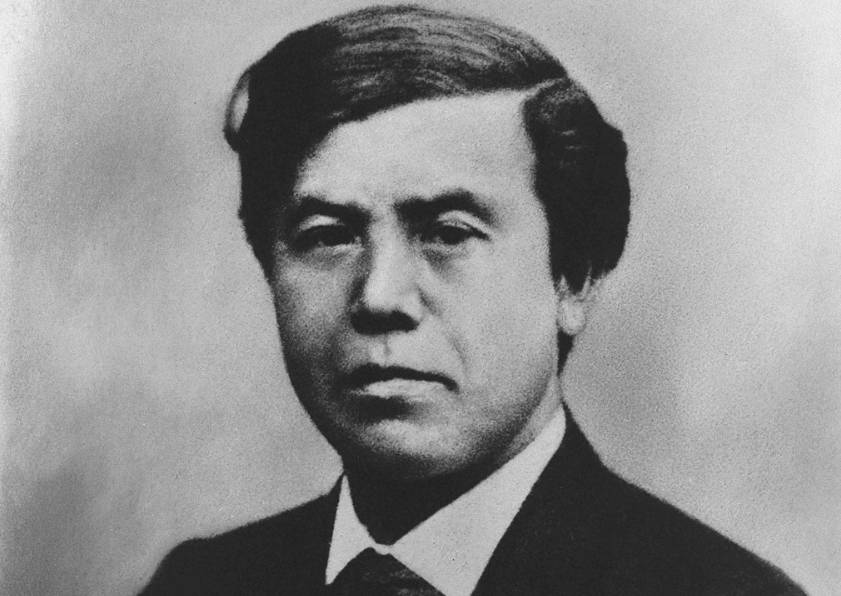Who was Kido Takayoshi? Explore the life and legacy of Kido Takayoshi, a visionary Japanese statesman who played a pivotal role in Japan’s transition from feudalism to a modern nation-state during the Meiji Restoration.

Kido Takayoshi, born in 1833 in the Choshu region of Japan, was a prominent Japanese statesman and reformist leader. Coming of age during the Edo period, he witnessed significant social, political, and cultural transformations in Japan. Kido played a pivotal role, particularly during the mid-19th century Meiji Restoration, which aimed to increase Japan’s interaction with the outside world.
Raised in a samurai family affiliated with the Choshu han, Takayoshi emerged as an influential intellectual from a young age. As a key figure in Japan’s efforts towards modernization and Westernization, Kido held high positions in the Meiji government, contributing significantly to the country’s transformation. Simultaneously, he provided leadership in critical decisions regarding reforms and foreign relations during the Meiji era.
Kido Takayoshi’s legacy extends beyond his pivotal role in Japan’s transition from a feudal system to a modern nation-state. His vision supported Japan’s integration with the West and its emergence as a prominent player on the international stage. The reforms under his leadership marked a fundamental turning point in Japan’s trajectory as a global actor.
Biography
Kido Takayoshi; Japanese statesman : b. Hagi, Choshiu, 1832; d. Kioto, May 27, 1877. His father, a prominent physician, gave his son the best education obtainable in Japan in his day, and the boy, intelligent, quick and ambitious, made the best of his opportunities. Coming of a semi-noble family he found almost any office open to him that he cared to aspire to. He had a strong faculty for taking infinite pains and doing things well; and the story is told of him that when Commodore Perry’s forces visited Japan in 1854, he secured employment with it disguised as a laborer in order to learn all he could about the western nation that seemed to be forcing upon Japan conditions for which she had no love nor inclination. He did his work so well and maintained his disguise so completely that he was never discovered. This feat was characteristic of the man. But the adventure seems to have changed the whole trend of his thought.
His contact with western life in this intimate manner gave him an insight into western ways that set him thinking in a new direction; and the result was that he continued to study the new conditions and civilization that he had thus unexpectedly discovered, with the result that he became convinced that Japan could no longer afford to continue isolating herself from the world.
The natural result was that in 1868 he finally joined the revolutionary party of which he became the greatest thinker and planner. With Okubo, Saigo and Iwakura he worked out the details of the coup d’etat of Jan. 3, 1868, which placed a new government in power subject to the Mikado alone and in reality changed the whole trend of the life of Japan, political as well as social. This revolution overthrew the power of the daimios and caused the abolishment of the feudal system. As a result 270 daimios relinquished their feudal power and agreed to hold their landed property directly from the Crown. Thus Japan was placed, at one blow, on the road to that modern progress which astonished the western world. Kido, with his eyes ever turned westward, realized the power of the modern press and he founded the first real newspaper in Japan, the Shimbun Zasshi, which, under his able management, became a power for progress and modern ideas ; and thus helped greatly to the leading of Japan along the pathway of western progress.
This paper, founded in 1868, linked him firmly to western ideas ; and turned his face ever westward. It also increased his desire to see and to know at first hand the civilization of which he had become, in a sense, in his own country, the champion. So, in 1873, he started out for a voyage round the world, as vice-president of a “traveling Japanese embassy,” an idea of which he had himself been, in a sense, the sponsor. With him went another notable Japanese character, Prince Tomomi Iwakura, one of the most intelligent of the Japanese revolutionary leaders. This world-wide trip made Kido a still stronger advocate of western civilization which he made every effort, through his court influence and his newspaper, to introduce into Japan. The translation which he had made of Montesquieu’s L’Esprit des lois, which he caused to be published at his own expense, and which he largely advertised, did a great deal to influence the thinking class of the country in favor of a new and liberal constitution for Japan, which was finally secured in 1889.
This constitution did away with the last vestiges of the feudal system and provided the machinery for a much more democratic administration of the affairs of the country, though it left it still firmly monarchial. Thus the result of his life-long labors bore fruit 11 years after his death. On his return to Japan in 1874, from his trip around the world, Kido became Privy Councilor to the emperor, a position which he retained until his death, and which enabled him to still further work for the ideas which had ever guided his life from the time he first made the acquaintance with western civilization through his first hand knowledge gained from his adventure with the Perry expeditionary party. His great qualities as a statesman and his single-heartedness in working for the good of Japan were recognized by posthumous honors during the exercises held in connection with the promulgation of the constitution of 1889 and in the raising of his son to the rank of a noble.